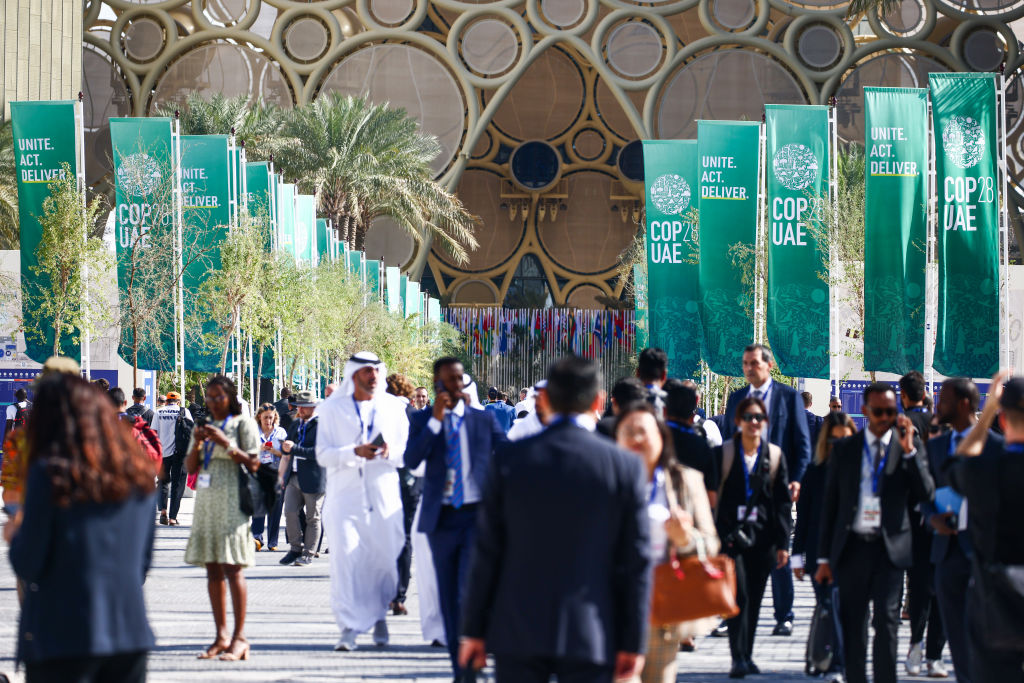
More than 70,000 people are gathering at the COP28 climate conference in Dubai, United Arab Emirates, this week, a temporary population larger than the permanent one that lives in Asheville, N.C. The COP28 attendees include government officials, climate scientists, climate activists, Indigenous peoples and, increasingly, fossil fuel lobbyists—a lot of fossil fuel lobbyists.
According to the advocacy group Kick Big Polluters Out (KBPO), the number of industry representatives pushing Big Oil’s case at this year’s U.N. Conference of the Parties (COP) has nearly quintupled in the past three years. In 2021, at the COP26 gathering in Glasgow, Scotland, there were 503 fossil fuel lobbyists present. That increased to 636 at COP27 in Sharm el-Sheikh, Egypt, in 2022, before ballooning to a whopping 2,456 this year in Dubai.
According to KBPO, this year’s number easily exceeds the 1,509 passes issued to delegates from the 10 most climate-vulnerable nations combined, including Somalia, Chad, and the Solomon Islands. The fossil fuel industry’s outsized presence at the climate negotiations also comes as new data show global carbon emissions continue to rise.
The numbers can be crunched in other ways too—all of them unsettling. In the past 20 years, for example, representatives of major polluters have attended climate talks more than 7,200 times. This year’s claque of 2,456 lobbyists is outnumbered only by the 3,081-strong delegation sent by Brazil (which is expected to host COP30 in 2025) and the 4,409 registered by the United Arab Emirates itself.
Read more: What Happens When You Put a Fossil Fuel Exec in Charge of Solving Climate Change
Geography plays a troubling role too. Of the top 20 trade groups attending COP28, all come from the global north, illustrating the disproportionate impact the decisions made and the actions taken by that half of the planet have on the climate health of the global south. And then, too, there is the business of demographics, with powerful—and generally older—lobbyists making decisions and wielding influence that will have their biggest impact on the generations to follow.
“Oil and gas companies have spent decades delaying climate action and continue to do so at these talks in record numbers,” said George Carew-Jones, a spokesperson for the YOUNGO youth constituency of the United Nations Framework Convention on Climate Change, in a statement. “They talk about being our saviors whilst only increasing oil and gas production and profits. The young people of the world cannot rely on therm to safeguard our future.”
More Must-Reads from TIME
- Cybersecurity Experts Are Sounding the Alarm on DOGE
- Meet the 2025 Women of the Year
- The Harsh Truth About Disability Inclusion
- Why Do More Young Adults Have Cancer?
- Colman Domingo Leads With Radical Love
- How to Get Better at Doing Things Alone
- Michelle Zauner Stares Down the Darkness
Write to Jeffrey Kluger at jeffrey.kluger@time.com